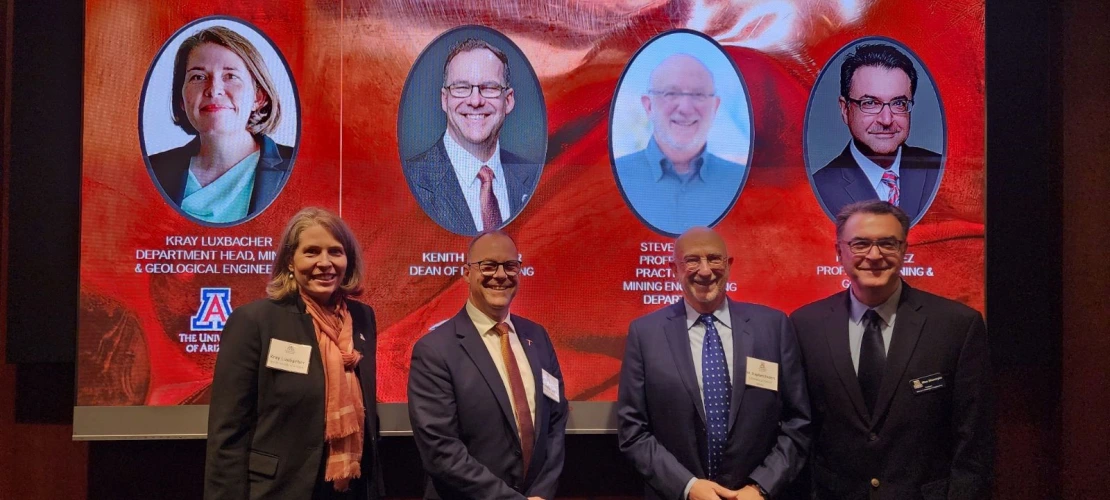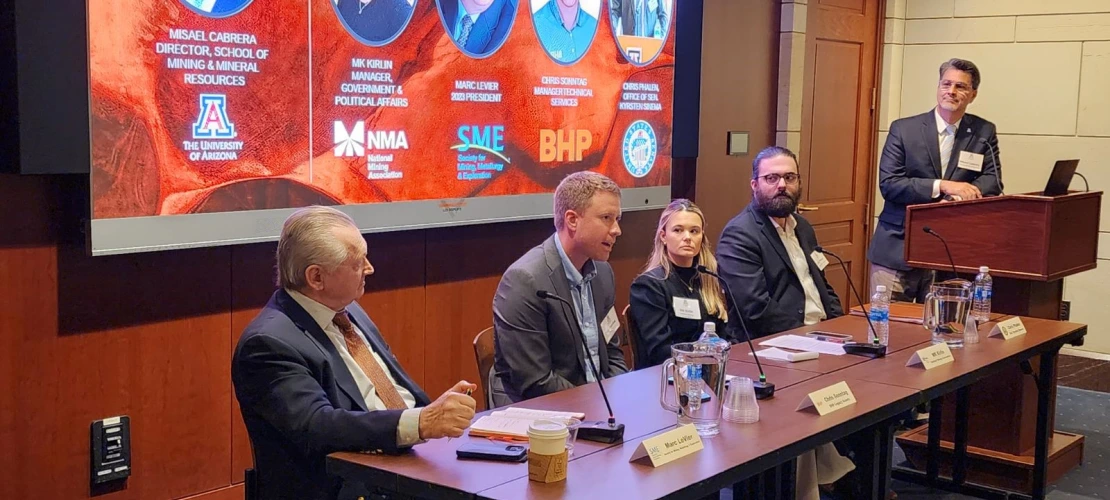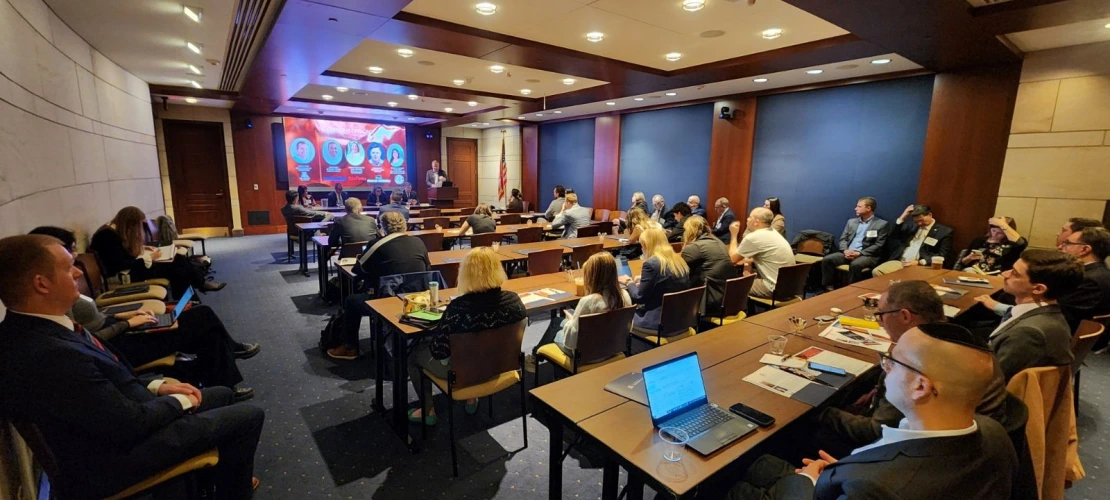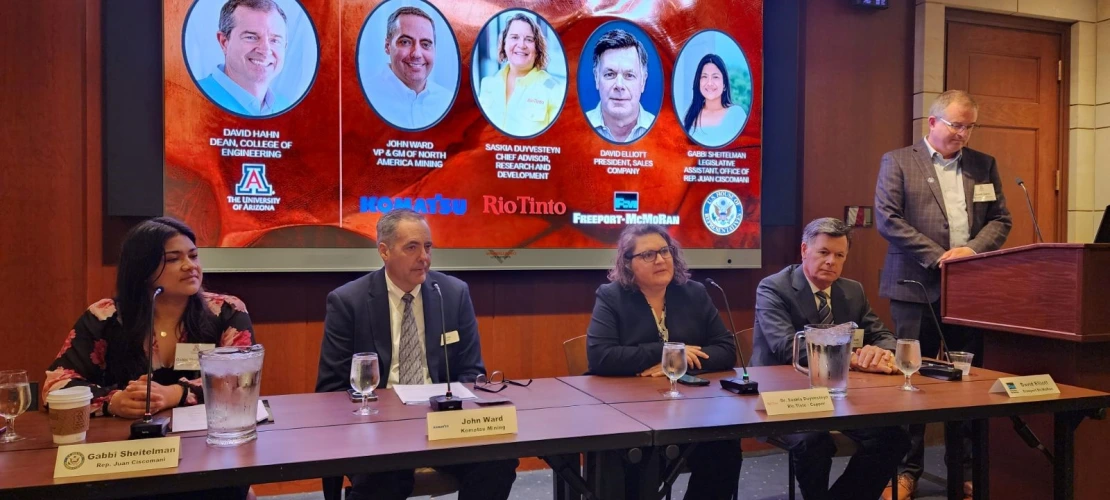Mining, mineral expertise shines as University of Arizona hosts 'Copper is Critical' in Washington
The university convened key leaders across government, industry and academia on Capitol Hill
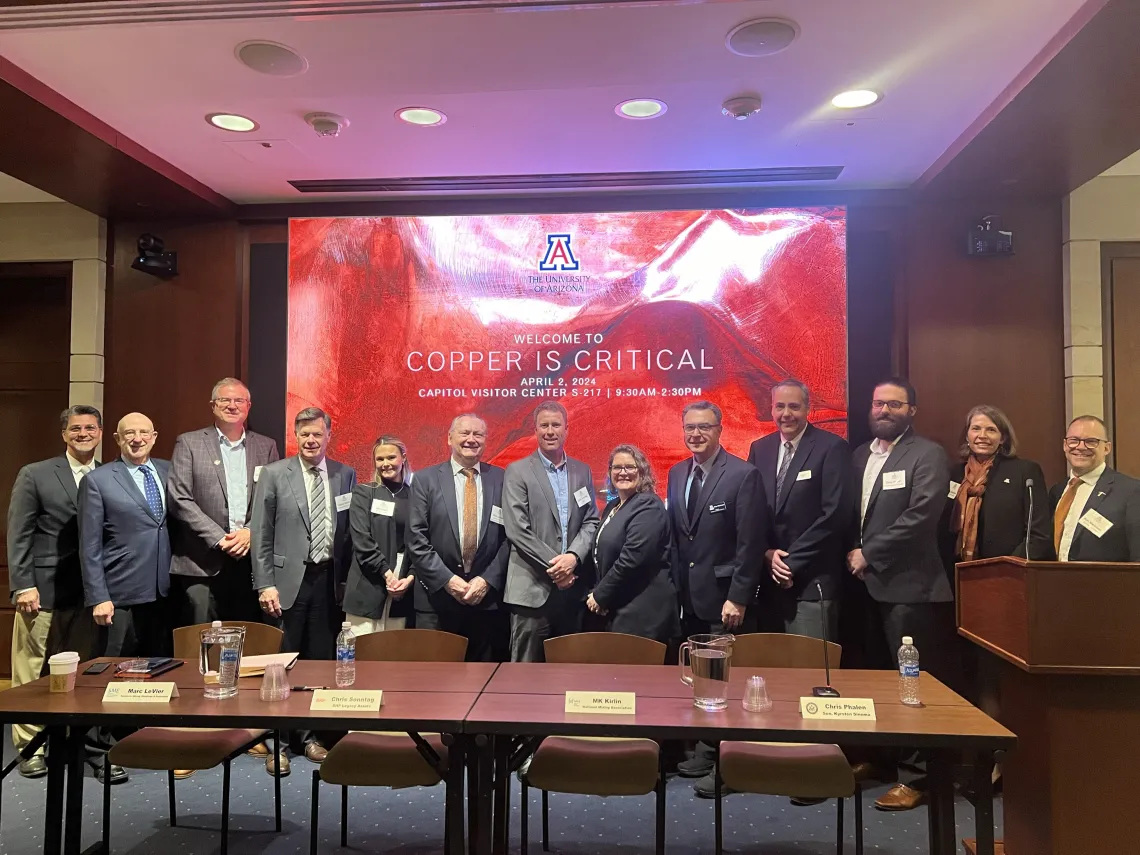
Panelists from global and national mining industry, national mining organizations, and mining schools participated in the University of Arizona’s Copper is Critical event on Capitol Hill. This included, the Colorado School of Mines, the University of Texas at El Paso, Freeport McMoRan, the Society for Mining, Metallurgy, and Exploration, National Mining Association, Rio Tinto Copper, Komatsu Mining, and BHP Legacy Assets.
As Congress seeks to secure the U.S. critical mineral supply chain and reduce foreign reliance, the University of Arizona is driving cutting-edge research and initiatives to pioneer sustainable mining practices, cultivate the domestic mining workforce, and power the national transition to renewable energy and next generation defense technology. University faculty and staff from the College of Engineering, College of Science and Office of Federal Relations led insightful discussions on those topics as they hosted leaders from government and industry for “Copper is Critical” at the Capitol Visitors Center on April 2.
Though copper is not considered a critical mineral by the United States Geological Survey, there is no denying its importance to the State of Arizona, where 70% of our nation’s copper is produced. The mineral is critical to the rest of the United States and the global economy as well, according to David Hahn, Craig M. Berge dean of the College of Engineering. He opened the first panel with highlights from the latest report from the International Energy Forum that found the U.S., in the next 30 years, needs to produce more copper than we have historically. That would require bringing a mine online every year. The last new mine was brought online in 2021.
“Bringing a mine on every year seems impossible,” said Hahn. “It needs to ramp up and that requires a significant shift in the public’s understanding of how we can do this work in a safe, sustainable manner.”
The Congressional Western Caucus learned firsthand how the university is connecting faculty across disciplines to educate the future leaders of this industry. A tour of the university’s San Xavier Underground Mining Laboratory was part of a larger border excursion led by U.S. Rep. Juan Ciscomani, representing Arizona’s 6th Congressional District. Gabbi Sheitelman, Ciscomani’s legislative assistant, said copper is vital to the nation’s clean energy efforts.
“We need to ensure we have a secure domestic copper supply chain,” she said. “We need permitting reform. Mining in America is cleaner, more secure and more sustainable.”
Several panelists mentioned the lengthy permitting process being a hindrance to the industry’s growth. Kray Luxbacher, Greg and Lisa Boyce leadership chair of the Department of Mining and Geological Engineering, estimated it can take anywhere from two to 20 years. Regardless of the timetable, a new mine would still need miners.
“To produce minerals we need more mines, but we lack a collective workforce in the U.S.,” said Luxbacher. “We are one of only 14 colleges nationwide to produce graduates ready to enter the industry as soon as they turn their tassel.”
The need for an educated workforce is needed and urgent, according to Marc LeVier, 2023 president of the Society for Mining, Metallurgy & Exploration (SME). He said fewer than 200 engineers graduated from schools accredited in mining and engineering, but the industry has the capacity to hire 600 annually.
“That’s a phenomenal amount,” he said. “To accommodate the industry’s needs across mineral commodities, we’ll need 350 new mines. The workforce that goes with that is going to drive a demand that will increase three to four times at least.”
The Mining Schools Act, which was referenced several times throughout the panels, would create a new grant through the Department of Energy to support mining and recruitment efforts. Chris Phalen, senior policy advisor for U.S. Senator Kyrsten Sinema, called it a cost effective, common sense and bipartisan way to establish the need for the workforce and lack of mining workforce. He is hopeful the act will be passed this session.
“Forums like this and legislation are really important to trying to build out infrastructure for this kind of education and engagement,” said Phalen. “People aren’t going to attend mining school if they aren’t interested in the basics. They need to understand why it matters.”
What the act cannot do though, is sway public opinion. Rather than relying on foreign sources for these critical minerals, we could be mining them domestically with the best natural resources under the best environmental safety standards, according to Mary Kathrine Kirlin, manager of government and political affairs for the National Mining Association.
“We need to show people that we are committed to environmental stewardship, at the forefront of technological advancement and that there are careers to be had that attract a wide range of skillsets,” she said.
The university will continue collaborating with industry representatives and policymakers in order to lead conversations that ultimately result in sustainable solutions for all Arizonans. The next event will be the School of Mining & Mineral Resources’ Mining Social License Summit in Tucson on April 25 and 26.


